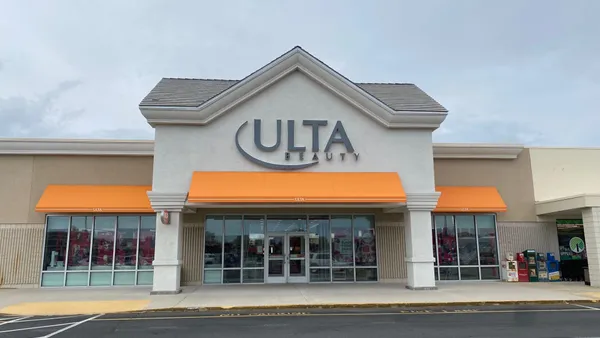Dive Brief:
- Over a third of Americans took on debt this holiday season in order to make seasonal purchases like gifts, according to a December survey of 2,049 U.S. consumers that LendingTree commissioned from QuestionPro. Only 44% of that number had planned to.
- Consumers took on an average debt of $1,181 this holiday season, up from $1,028 in 2023, with the vast majority of shoppers using credit cards (65%), store cards (24%) and buy now, pay later services (21%) to make purchases. Sixty percent of consumers who took on debt say they were stressed doing it.
- Millennials at 42% took on the most debt, followed by Gen X at 37%, Gen Z at 34% and baby boomers at 29%.
Dive Insight:
While shoppers continued to overspend during the holidays, this year’s results were still down from 2022 levels, which saw an average debt of about $1,550, the highest in the 10-year history of the LendingTree survey, per a company spokesperson.
Six-figure earners took on the most debt this holiday at $1,429, while those making between $30,000 and about $50,000 leveraged the least amount at $909. Parents with young children were most likely (48%) to take on debt over the holiday period.
While nearly three-quarters of respondents said they would participate in holiday gift-giving, 42% of consumers regret spending as much as they did during the holidays. Over 20% of consumers who took on debt expect it to take five months or longer to pay off.
“Inflation is still a big deal in this country, and it’s having a huge impact on people's finances, including their holiday spending,” Matt Schulz, LendingTree’s chief credit analyst, said in a statement. “While people make lots of sacrifices to deal with higher prices, many may not want to sacrifice at the holidays, so debts continue to rise.”
Schulz said that making minimum payments is a problem even though some consumers do it every year.
“Taking forever to pay off holiday debt means that you’re unable to put as much toward other financial goals such as building an emergency fund or saving for retirement or a mortgage down payment,” he said. “In more extreme cases, it may mean you’re less able to pay essential bills or keep food on the table.”













